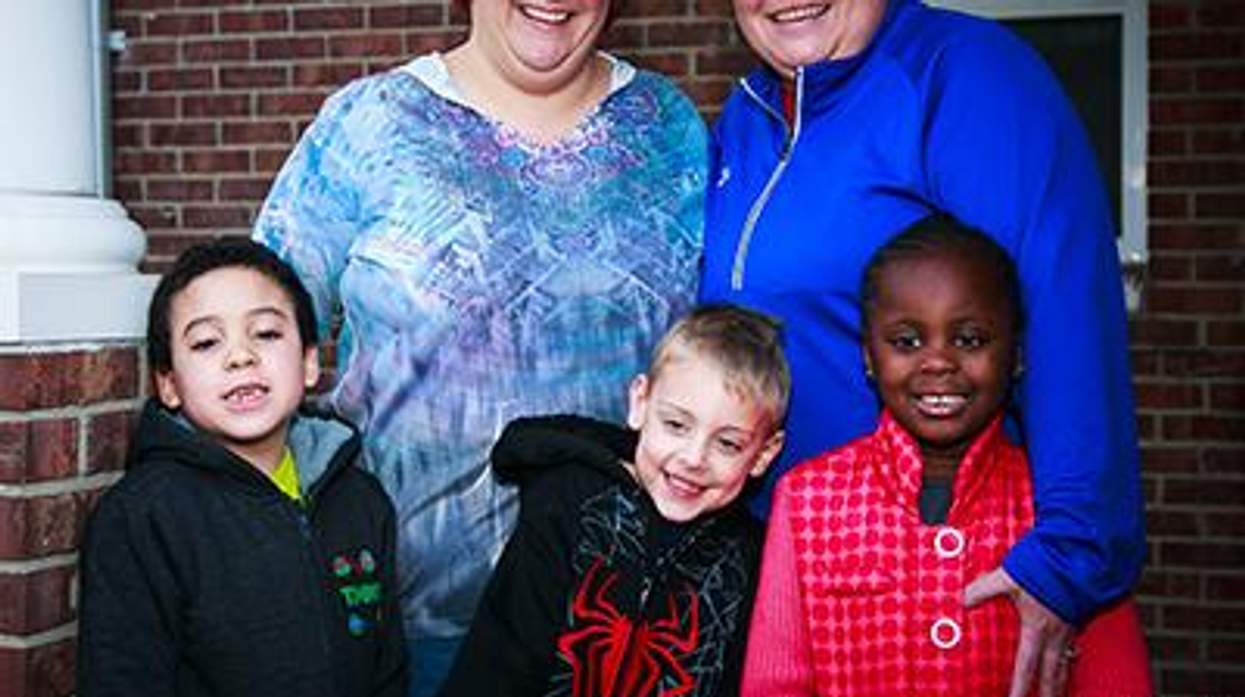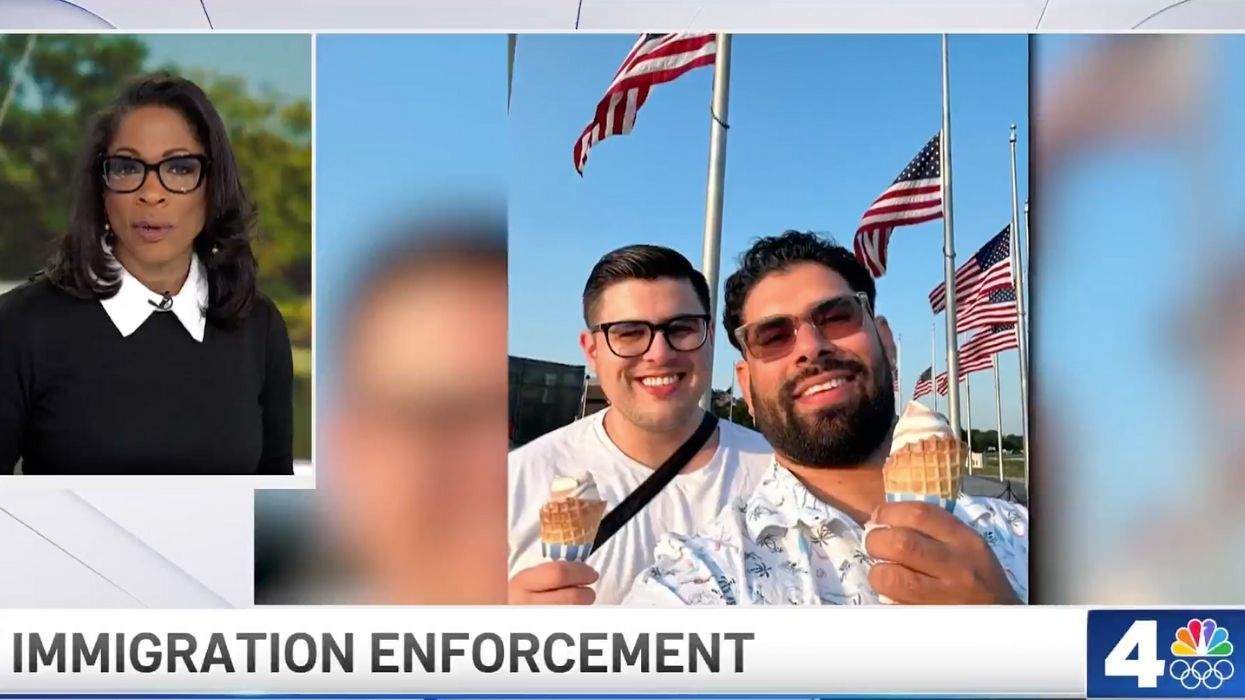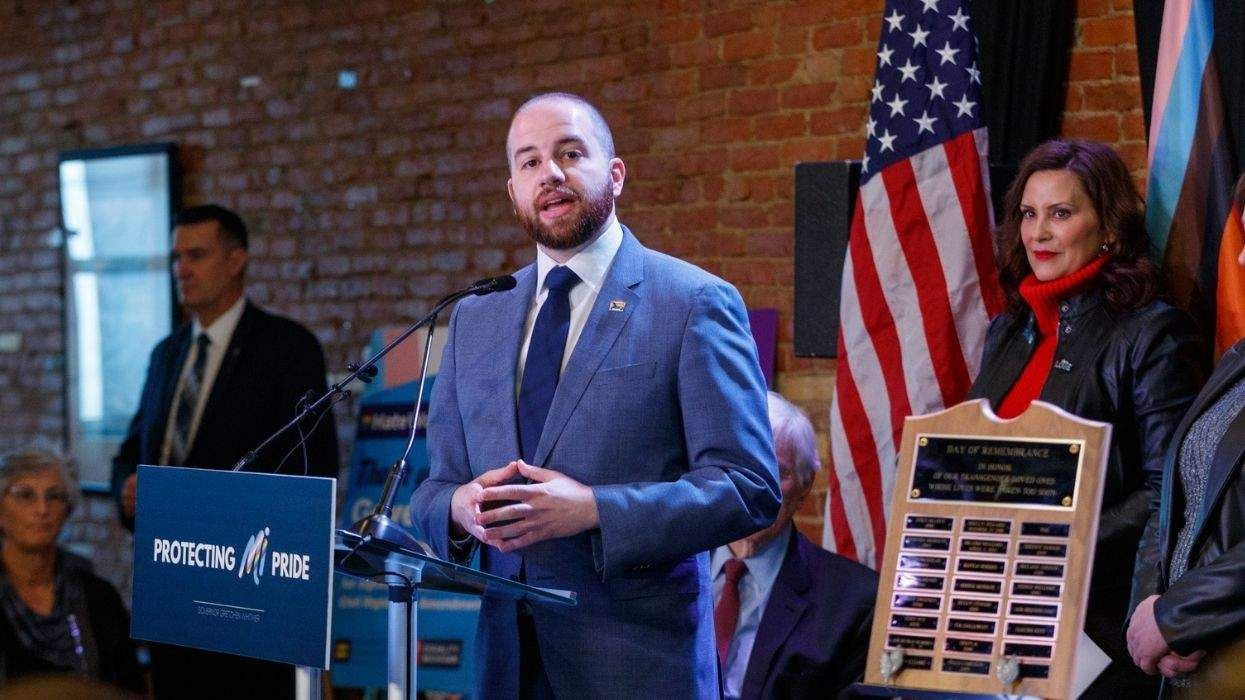Couples whose arguments for marriage equality will be heard by the U.S. Supreme Court this spring filed their opening briefs with the court Friday, the deadline for such filings.
Challenges to marriage bans in Michigan, Ohio, Kentucky, and Tennessee will be heard as a consolidated case by the high court in late April. The U.S. Court of Appeals for the Sixth Circuit upheld those states' bans in November, making it the only federal appellate court to do so. The Supreme Court agreed in January to hear the case.
The arguments the plaintiffs make in their briefs are similar but with some variance. The Ohio plaintiffs were the first to file their brief, Equality on Trial reports. They include four same-sex couples and two widowers. All were married in other states, but Ohio does not recognize their unions. "From the start of the marriage to the birth of children to the death of one spouse and beyond, Ohio erases the legal relationships of Petitioners' families," reads the introduction to the brief. "Ohio treats these spouses as legal strangers to one another and recognizes only one member of each couple as the legal parent to their children. Ohio even cruelly refuses to recognize Petitioners' marriages on death certificates when one spouse dies. Through its marriage recognition bans, Ohio strikes out at a class of individuals whose intimate, personal relationships have been afforded a solemn and special status by other states -- men and women who love and marry a person of the same sex."
The next came from the Tennessee plaintiffs, all couples married elsewhere who moved to Tennessee for job-related reasons. "For petitioners, therefore, the price of moving to Tennessee was loss of their legal status as married couples and as family members," the brief states. "This cost is also borne by their children, who find themselves without the protections and advantages arising from having married parents. Tennessee has long followed the 'place of celebration rule,' and recognizes marriages validly entered into outside the State, including those that could not validly be entered into within Tennessee, except where the marriage would be a crime within the State. Tennessee uniquely singles out for non-recognition the lawful out-of-state marriages of same-sex couples."
In Kentucky, the plaintiffs are two couples who sought marriage licenses in the state and four who were married elsewhere and seek recognition of their unions. Their brief notes the evolution of social attitudes and court decisions regarding discrimination based on race or sex, then states, "This Court's decisions regarding gay people and their intimate relationships have traced a similar arc. ... This Court has made clear that the Constitution forbids laws criminalizing intimate sexual conduct between persons of the same sex ... or excluding same-sex couples from the federal protections that come with marriage." It is time "to apply this principle to state laws excluding same-sex couples from the institution of marriage," the brief continues.
The Michigan plaintiffs are April DeBoer and Jayne Rowse, along with three of the adopted children they are bringing up. (Since their case began, they have adopted a fourth and are in the process of adopting a fifth child.) Because they cannot marry in Michigan, each of the children has only one legal parent. Two of the children qualified as special-needs children for a time, but all are thriving now, the brief states. It quotes experts who testified in the trial court that children of same-sex parents fare just as well in life as those of opposite-sex parents, and takes apart the "apples to oranges" comparison by Mark Regnerus, a sociologist who reached a different conclusion. "He compared children raised by intact, married opposite-sex couple parents with children raised by a parent who reported ever having had a romantic liaison with a person of the same sex, regardless of whether the other person ever lived with the child or the child even knew the other person. ... When Professor Regnerus' data are controlled for family stability, his data actually support the consensus that there is no difference in child outcomes based on parents' sexual orientation."
In all the briefs, attorneys argue "that justices should strike down laws not only in the those states on they basis they violate the Fourteenth Amendment, but issue a nationwide decision striking down all remaining state prohibitions on gay nuptials," as the Washington Blade puts it. The couples' attorneys also call for bans on same-sex marriage to be subjected to "heightened scrutiny, or a greater assumption those laws are unconstitutional," the Blade notes, given the likelihood of bias against gay, lesbian, and bisexual people.
Supporters of marriage equality who are not parties to the case are due to file their amicus, or friend of the court, briefs by March 6. Oral arguments have yet to be scheduled but are likely to take place the week of April 27, according to the Blade, with a decision expected by late June.















Charlie Kirk DID say stoning gay people was the 'perfect law' — and these other heinous quotes
These are some of his worst comments about LGBTQ+ people made by Charlie Kirk.